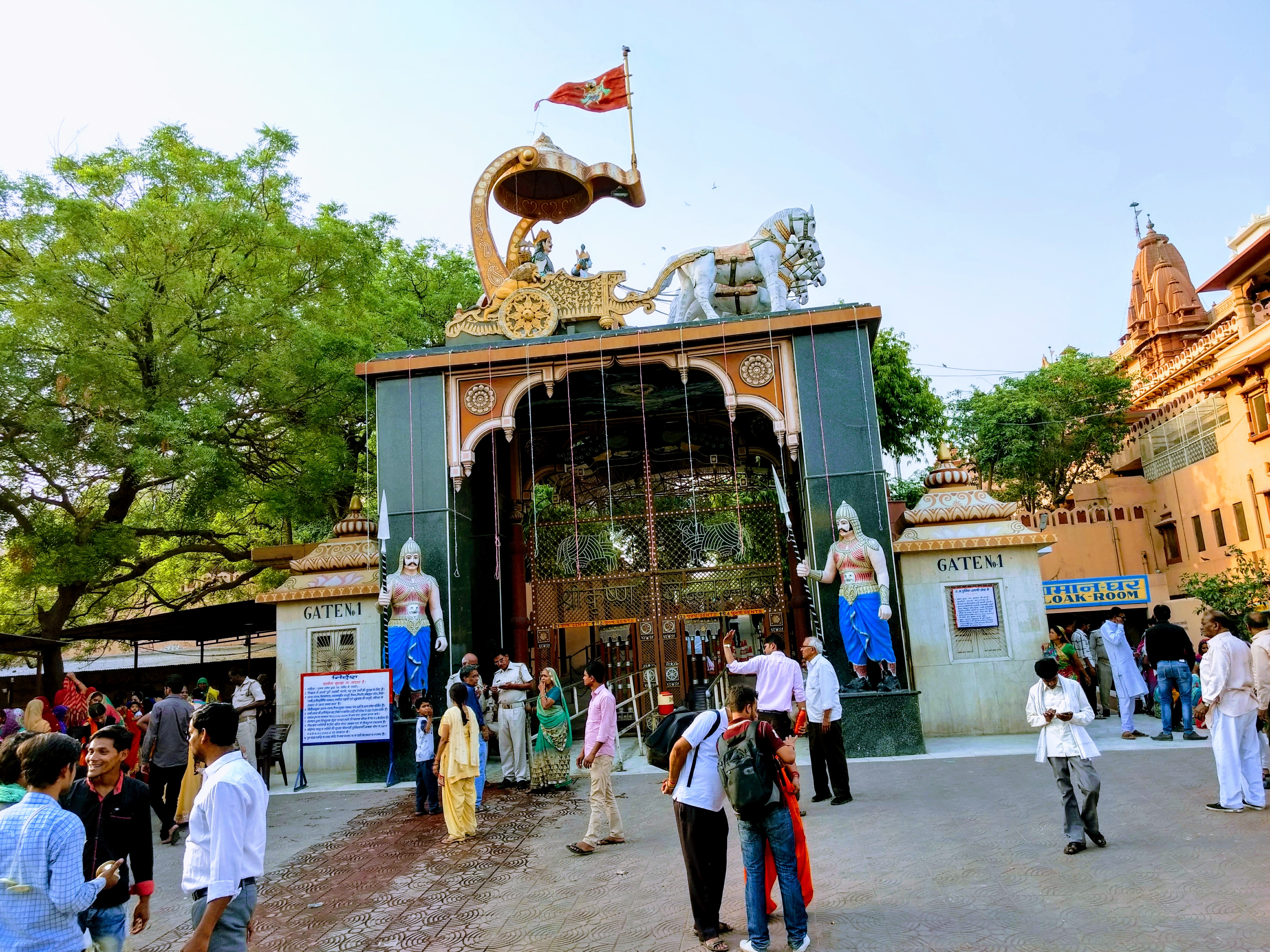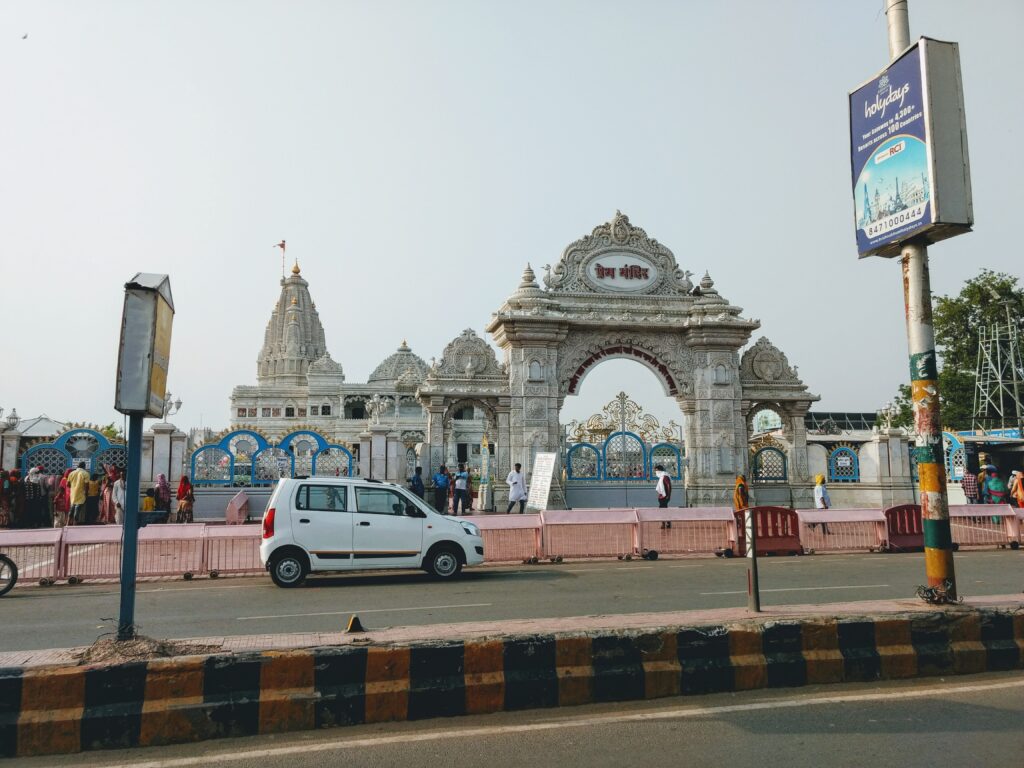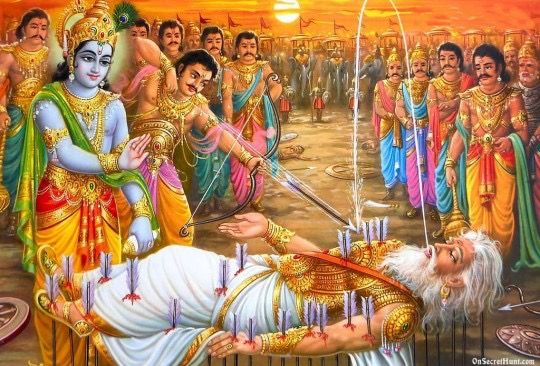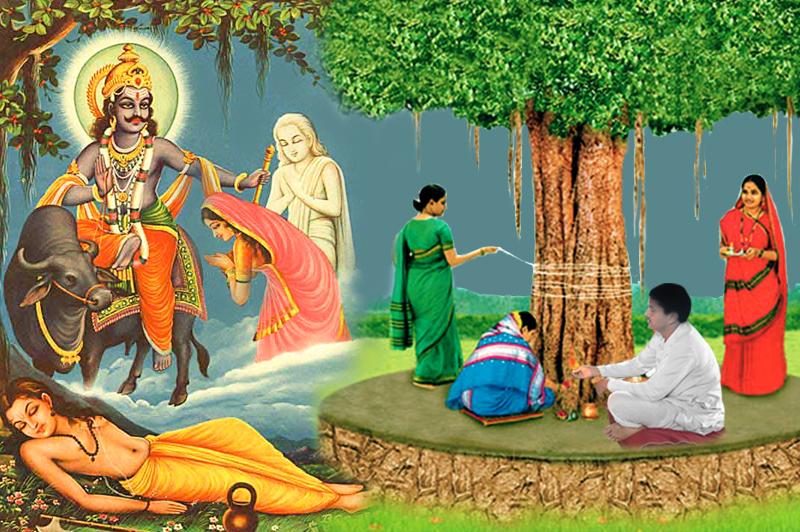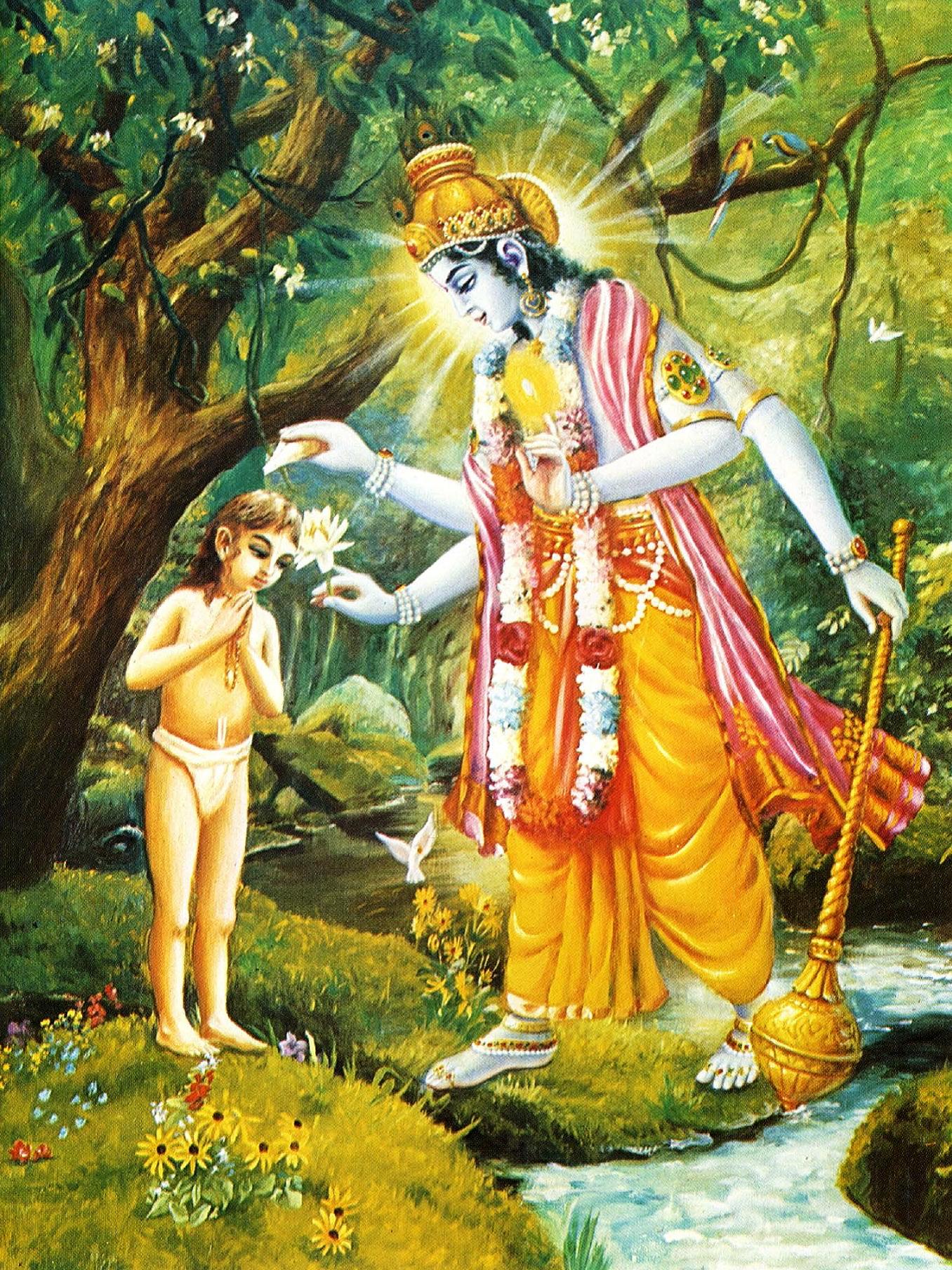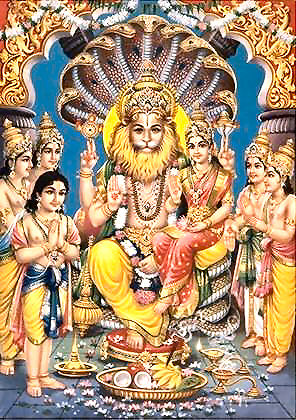Recently, my wife and I had an opportunity to visit several sacred sites in eastern India. These included Gangasagar, Dakshineshwar Kali Temple and Belur Math in Kolkata and Baba Baidyanath Dham temple in Deoghar.
Gangasagar is an island in the Ganga delta, about one hundred kilometres south of Kolkata, India. It is also known as Sagardwip or Sagar Island. The River Ganga is fully merged with the sea in the Bay of Bengal at the southern tip of the island. A temple dedicated to Kapil Muni is located at the site. It contains images of sage Kapil, River Ganga, king Bhagirath, Indra and other Hindu deities. Sage Kapil was an incarnation of lord Vishnu. He was the founder of the Sankhya Philosophy, one of the six ancient Hindu philosophical traditions. Sage Kapil is also associated with the advent of River Ganga on the earth.
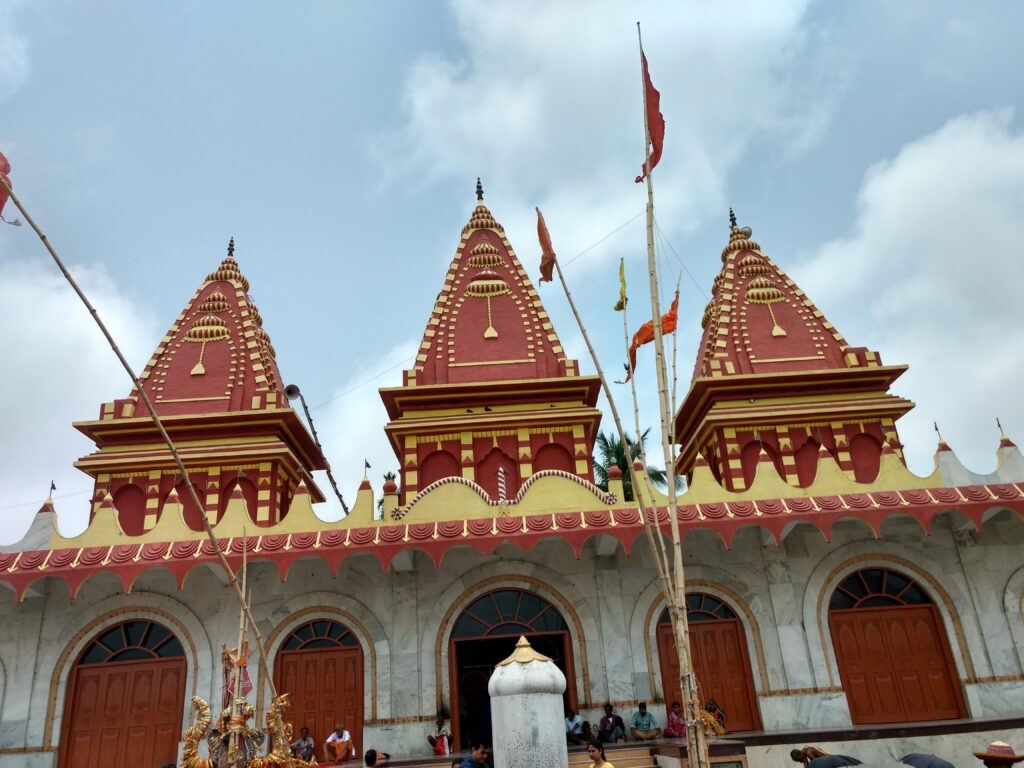
According to the legend, king Sagar of ancient Ikshvaku dynasty planned to perform a Rajsuya Yagya. Following the custom, a sacrificial horse was released to roam over the earth to demonstrate his unrestricted authority, before the Yagya could be completed. Indra, the king of deities, was envious of king Sagar’s glories and decided to disrupt his Yagya. He stole the horse and hid it at the Ashram of sage Kapil. Kapil’s Ashram was at the southern tip of the modern Gangasagar Island, which was believed to be located in the netherworld in ancient times. Sixty thousand sons of king Sagar were following the horse. They found it at Kapil’s Ashram and noticed him in deep meditation. They assumed that sage Kapil had stolen the horse and he was simply pretending to be meditating to deceive them.
They spoke ill of the sage and created an upheaval that led to disruption of the sage’s meditation. Kapil opened his eyes and looked at the troublemakers. All the sixty thousand sons of Sagar burnt to ashes due to the sage’s anger. When the horse did not return to the capital, king Sagar sent his grandson Anshuman to find out what had happened. On his mission, Anshuman eventually found the horse at Kapil’s Ashram. On enquiry, he learnt that his sixty thousand uncles had perished there due to their misbehaviour with the sage.
Anshuman pleaded with the sage for a way to emancipate his uncles. As their proper rites of cremation were not performed, their souls would be roaming as ghosts and hounding the family offspring until they were released from the effect of the anger of the sage.
Sage Kapil became pleased with Anshuman’s candour and advised him that his uncles’ souls would become free if their ashes came in contact with River Ganga. The River Ganga resided in the heaven during that period. Now it was the responsibility of king Sagar to bring River Ganga on the earth. King Sagar did not succeed in bringing Ganga to the earth.
His grandson king Anshuman and great grandson king Dilip also remained ineffective in bringing Ganga to the earth. It was the king Bhagirath, the son of Dilip, who was able to please Brahma, who instructed Ganga to come to the earth. King Bhagirath also gratified lord Shiva to hold Ganga on his head to tame her flow. Finally Ganga descended on the earth and following the path led by Bhagirath, came to the spot where the ashes of his deceased ancestors were left. By the effect of the contact with Ganga’s water, all sixty thousand sons of Sagar were emancipated.
It was on the Makar Sankranti day when Ganga reached Gangasagar. It is believed that taking a dip at Gangasagar frees a person and his/her ancestors from the cycle of birth and death. Although pilgrims visit the Gangasagar Island throughout the year, during the Makar Sankranti festival on 14 January, thousands of pilgrims come to take a holy dip at the confluence of Ganga with the sea. A huge fair is organised at the site during this period.
There is a popular saying about Gangasagar. “Sab tirath bar bar, Gangasagar ek bar” i.e. all sacred sites can be visited many times but one trip to Gangasagar is enough. It reveals the difficulties associated with travel to Gangasagar due to its remoteness in ancient times. Now, it is well connected with various modes of transport. We were able to complete the trip to Gangasagar in one day from Kolkata, which involves journey by train or bus, car, ferry and riksa.
Kolkata, the capital of the Indian state of West Bengal, is one of the highly populous cities in the world. It was the capital of British India until 1911. River Ganga, which is known as Bhagirathi Ganga or Hooghly, flows through the city. There are many well-known temples and religious institutions located in the city. Among them, Dakshineshwar Kali Temple and Belur Math are its outstanding landmarks. Both are associated with Ramakrishna and Vivekananda, who made both temples world famous.
Dakshineshwar Kali Temple is located on the east side of the Hooghly River. Rani Rashmoni, a devotee of Mother Kali and a philanthropist, built the temple. Kali is a manifestation of goddess Parvati, spouse of lord Shiva. The temple complex is spread over 20 acres and was completed in 1855. Pandit Gadadhar, who later became famous as Ramakrishna Paramahansa, was the priest at the temple. His wife Sharada Devi also lived at the temple. Devotees venerate her as Ma Sharada. Swami Vivekananda visited the temple regularly after he became a disciple of Ramakrishna Paramahansa.
The main temple has an imposing nine-spired top construction. A statue of Mother Kali is installed in the sanctum sanctorum. In front of the main temple, twelve Shiva temples, each dedicated to a Jyotirlinga, are located facing the River as well as the main Kali temple. One Radha Krishna temple is also located in the complex. In addition, a number of other buildings in the compound serve various spiritual and administrative purposes.
Belur Math is located on the west bank of the Hooghly River downstream of Dakshineshwar Kali Temple. A regular ferry service operates between the two shrines. Belur Math is the dedicated head quarter of Ramakrishna Math and Mission. Swami Vivekananda, the chief disciple of Ramakrishna, founded it. The main building was completed in 1938. The Math complex contains a number of buildings. The main building has a large hall for sitting and meditation. A marble statue of Ramakrishna Paramahansa is installed in its sanctum sanctorum. Devotees sit on the floor, meditate upon the supreme God and pay respect to the statue of Ramakrishna.
A Ramakrishna museum located in the Math complex displays items associated with Ramakrishna, Ma Sharada, Vivekananda and other heads and scholars related to the Ramakrishna tradition. The Ramakrishna tradition, propagated by Swami Vivekananda, follows Advaita Vedanta. A bookshop in the compound sells religious texts related to Advaita Vedanta as well as on other spiritual and educational subjects. A shrine dedicated to Vivekananda is also located at the site. In the Math complex, there is a large quiet open space facing the river, which makes it an ideal place for relaxation and spiritual meditation.
On the way from Kolkata to Patna, a well-known pilgrimage site is Deoghar in the Jharkhand state of India. A temple known as Baba Baidyanath Dham Temple, dedicated to a Jyotirlinga of lord Shiva, is located in Deoghar. The Temple site is also believed to be a Shakti Peeth where a limb of mother Sati, wife of lord Shiva fell on the ground during his cosmic dance holding his dead wife. A temple dedicated to Sakti Peeth is also located near the Jyotirlinga temple. In total, there are twenty-two temples in the Baidyanath Dham Temple complex.
A number of legends are popular about the Baba Baidyanath Dham Temple. According to one legend, the Demon king Ravan prayed to lord Shiva at this site and offered his heads as sacrifice. Lord Shiva was pleased with his devotion and appeared before him as a Baidya or doctor and cured his injuries arising due to severing of his heads. Hence Shiva is worshipped as Baidya and the place is known as Baidyanath Dham.
Another legend relates to Ravan transporting lord Shiva from Kailash Mountain to his capital Lanka. Shiva was to live permanently in Lanka. Shiva agreed to the proposal of moving to Lanka, provided Ravan carried him without placing him on the earth until reaching his final resting place in Lanka.
Deities were alarmed by the idea of the proposed permanent residence of Shiva in Lanka. With the help of sage Narad, they planned a strategy to disrupt Ravan’s journey.
Deities induced a strong need in Ravan to relieve his bladder. Narad appeared as a person near him at that time. To maintain Shiva’s sanctity, Ravan handed him over to Narad to hold for some time and went to empty his bladder. However, observing the delay in Ravan’s return, Narad placed Shiva on the ground and left. On his return, Ravan found Shiva on the ground. He pleaded with Shiva to continue the journey with him to Lanka. Shiva reminded him of the condition he had stipulated, prior to agreeing to being transported to Lanka. In the end, Shiva remained put and a temple was built to house him at the site.
During the month of Shravan (July – August), hundreds of thousands of pilgrims known as Kanwarias visit the shrine, and offer water collected at Sultanganj in Bihar from River Ganga to the Shiva’s Jyotirlinga. Being a Jyotirlinga temple, it remains very popular in eastern India. The whole complex was renovated a few years ago but despite improvements made to the site, it remains very crowded throughout the year. Deoghar is well connected by roads and rails to all major cities in India.

